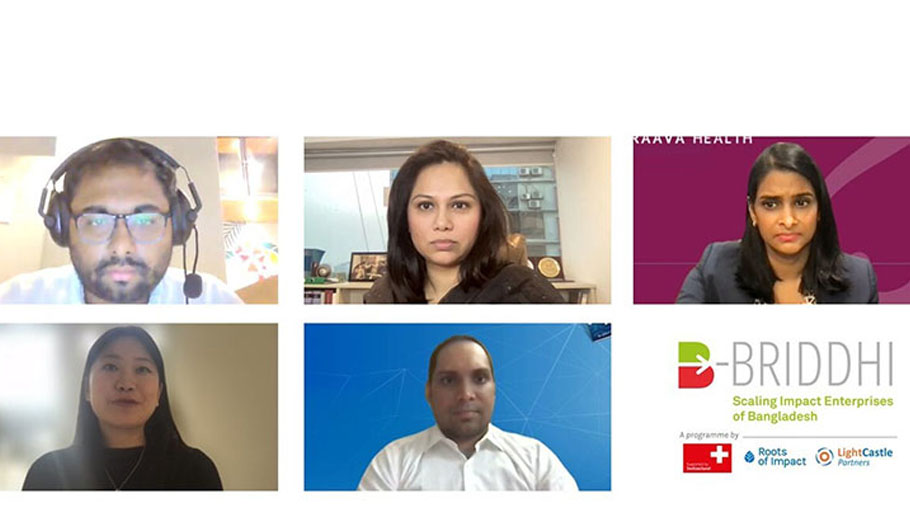Women-led enterprises face policy hurdles in access to finance
Experts tell a virtual seminar

Speakers at a discussion observed that the women-led enterprises in Bangladesh have been facing policy hurdles in accessing finance from formal financial institutes.
They opine that the SME sector is struggling to survive amid the Covid-19 crisis, which now need support, specially the women-led ones, for the national interest, according to a press release.
The virtual panel discussion titled “Gender inclusion through investing”, was organized by Biniyog Briddhi on Thursday.
Speakers insisted on improving women’s access to finance and to adopt a gender-lens approach throughout the investment lifecycle, including the origination and selection process.
Financial institutions are also reluctant to provide loans to women entrepreneurs, including under government announced stimulus packages, they alleged.
Read more: 3rd round of talks on India-UAE comprehensive economic pact from Monday
B-Briddhi is a multi-year partnership between the Embassy of Switzerland in Bangladesh, Roots of Impact, LightCastle Partners, and other stakeholders including investors, private sector organisations, incubators, and support organisations for impact enterprises.
The session was moderated by Maxime Cheng, Lead Market and Capacity Building Program at Roots of Impact.
Only 5.59 percent of the government announced Taka 200 billion ($2.3 billion) stimulus package recipients for the small- to medium-sized enterprises (SME) sector are women, and they are mostly urban-based, they added.
Amid all the challenges faced by female entrepreneurs, the topic of gender inclusion has gained momentum among the investor circle.
Apart from providing capital to women entrepreneurs, it is also essential to acknowledge that additional support to build women networks and create opportunities for women to rise to leadership positions through organizational policies are also essential tools to promote women’s economic participation, they said.
SME sector contributes 20% to 25% to Bangladesh’s GDP. If female entrepreneurs get necessary supports, then the sector’s contribution to GDP would increase, they observed.
A panel of investors, entrepreneurs, lawyers and intermediaries joined the discussion to share their unique experiences and perspectives for the audiences to better understand how impact can be amplified to improve gender inclusion through investments.
Sylvana Q Sinha, Founder, Chair, & CEO at Praava Health; Anita Ghazi Rahman, Founder and Managing Partner at The Legal Circle; and Bijon Islam, Co-Founder and CEO at LightCastle Partners; discussed about the potential of gender inclusion through impact investing in Bangladesh.
Sylvana Q Sinha shared her challenges as a founder of a healthcare startup and the role her gender has played in the business.
She said, “It is not enough for women founders to just know and have access to the right investment instruments for being successful. It is challenging to raise investments as a female founder and we are raising the topic and talking about it to create a community where women can find more support.”
Anita Ghazi Rahman, who is also an angel investor and lawyer, shared the lessons taken from her investments and how others can make a more impact-driven investment regarding gender inclusion.
Bijon Islam focused on the Gender Lens Investing in the context of Bangladesh and said, “Gender is not about just women but to reach to the vulnerable groups who do not get the access to modern instruments. Gender lens investing supports men and women who are in the decision-making role of a company based on the data.”
Nirjhor Rahman, CEO of Bangladesh Angels, shared the latest update from the Bangladesh Women Angels Network chapter, which is going to be launched soon.




